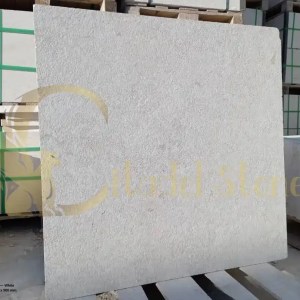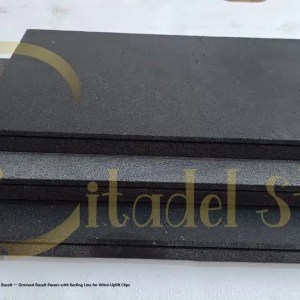Key Takeaways: Outdoor Wall Tiles Bahamas
- Climate Consideration: The Bahamas’ tropical climate, with its high humidity, salt air, and intense sun, makes choosing weather-resistant outdoor wall tiles essential for longevity and appearance.
- Best Tile Materials: Porcelain tiles are the best option for durability and moisture resistance, followed by ceramic (more budget-friendly) and textured natural stone tiles for rustic elegance (luxurious but higher maintenance).
- Design Trends: Coastal themes, tropical patterns, earthy tones, and textured or 3D tiles are popular for outdoor aesthetics, allowing homeowners to complement the natural Bahamian beauty.
- Proper Installation: It’s important to use the right adhesive, grout, and sealing techniques to ensure the tiles withstand the elements. Hiring a professional is recommended for the best results.
- Maintenance: Regular cleaning, resealing, and prompt repairs are essential to maintain the appearance and longevity of outdoor wall tiles in the Bahamian climate.
- Cost: Porcelain tiles typically range from $3 to $10 per square foot, while affordable natural stone tiles for modern upgrades can reach up to $15 per square foot, with installation costs adding significantly to the total price.

1. Understanding the Climate: Why It Matters for Outdoor Tiles in the Bahamas
The Bahamas is known for its beautiful tropical weather, but this can pose challenges when selecting the right outdoor materials, especially wall tiles. Here’s why:
- Heat and UV Radiation: The Bahamas’ sunny days and strong UV rays can cause materials to fade and degrade over time. Tiles need to resist discoloration while retaining their aesthetic appeal.
- Humidity and Rain: High humidity and frequent rainfall make the tiles susceptible to moisture retention. Moisture can lead to mold, mildew, and algae growth.
- Salt Exposure: If your property is located near the coast, the salt air can cause certain materials to erode, crack, or stain over time.
By choosing tiles designed to withstand these environmental conditions, you can ensure your outdoor walls maintain their durability and beauty for years to come.
2. Best Tile Materials for Outdoor Walls in the Bahamas
Not all tile materials are ideal for outdoor use in tropical climates. Here’s a rundown of the most popular tile materials for outdoor wall installations in the Bahamas:
a) Porcelain Tiles
Porcelain tiles are one of the most durable and versatile choices for outdoor use. They are non-porous, which makes them resistant to moisture, stains, and temperature fluctuations. They are also highly resistant to fading, making them perfect for areas exposed to sunlight. Their dense structure helps them withstand the rigors of the Bahamian climate, and they come in a variety of designs, colors, and finishes.
- Pros: Highly durable, moisture-resistant, fade-resistant, available in various textures.
- Cons: Can be more expensive than other materials and require professional installation for best results.
b) Ceramic Tiles
Ceramic tiles are another option but are best used in areas with less direct exposure to water. While they are durable and come in many designs, they are slightly more porous than porcelain tiles, making them more prone to moisture-related issues if not properly sealed.
- Pros: Affordable, easy to install, available in numerous colors and patterns.
- Cons: Less moisture-resistant than porcelain, may crack or chip under extreme weather conditions.
c) Natural Stone Tiles
Natural stone tiles like travertine, limestone, and slate provide a luxurious and earthy look to outdoor spaces. They blend seamlessly with the natural beauty of the Bahamas and are highly durable. However, natural stone requires more maintenance, as it can be porous and susceptible to salt damage and staining if not sealed properly.
- Pros: Natural beauty, highly durable, slip-resistant.
- Cons: Requires sealing and regular maintenance, higher cost.

d) Glass Tiles
While not a common choice for outdoor walls, glass tiles can be used to create stunning, reflective surfaces that work well in pool areas or as accents. They are highly resistant to moisture and staining, but they may be more prone to cracking due to impact or extreme weather.
- Pros: Aesthetically unique, moisture-resistant, easy to clean.
- Cons: Can be fragile and require professional installation.
3. Tile Design and Style Trends in the Bahamas

When it comes to outdoor wall tile design, there are several styles and trends that are particularly popular in the Bahamas:
a) Coastal and Nautical Themes
Given the Bahamian proximity to the ocean, tiles with coastal themes—featuring blues, greens, and whites—are a natural fit. Nautical designs, including fish scales or wave patterns, create a tranquil, beach-inspired look that harmonizes with the surroundings.
b) Bold, Tropical Patterns
The Bahamas’ vibrant culture can be reflected in outdoor wall tiles that feature bold patterns and bright colors. Tiles with floral or tropical patterns in hues like coral, turquoise, and lime green can inject life into any outdoor space, creating a playful and inviting atmosphere.
c) Textured and 3D Tiles
For a more modern and dynamic look, textured and 3D tiles are becoming increasingly popular. These tiles add depth and interest to outdoor walls, making them visually striking, especially in spaces like outdoor kitchens, patios, and entryways.
d) Natural and Earthy Tones
Many homeowners in the Bahamas prefer natural stone or earthy-toned tiles that blend with the outdoor environment. These tiles provide a calming and neutral backdrop that complements the lush greenery and ocean views, giving an understated yet elegant aesthetic.
4. Installation Tips for Outdoor Wall Tiles in the Bahamas
Proper installation is key to ensuring your outdoor wall tiles stand the test of time. Here are some essential installation tips:
a) Choose the Right Adhesive and Grout
Make sure to use weather-resistant, flexible adhesives and grout, especially in the humid climate of the Bahamas. Epoxy-based grout is highly recommended for outdoor use, as it is resistant to moisture, staining, and temperature fluctuations.
b) Seal Your Tiles
Even if you choose moisture-resistant tiles like porcelain or ceramic, sealing the tiles and grout can offer an extra layer of protection against the elements. For natural stone tiles, sealing is a must to prevent staining and salt damage.
c) Ensure Proper Drainage
Improper drainage can cause water to pool and seep into your walls, leading to moisture damage over time. Make sure that the walls where tiles are being installed have adequate drainage to prevent long-term issues.
d) Hire a Professional
Installing outdoor tiles, particularly in a climate like the Bahamas, can be challenging. A professional installer with experience in tropical environments will ensure that the tiles are laid correctly, using the appropriate techniques to prevent cracking, chipping, or detachment due to climate conditions.
5. Maintenance of Outdoor Wall Tiles in the Bahamas
Maintaining your outdoor tiles in the Bahamas is crucial to prolonging their lifespan and preserving their appearance. Here are some tips for keeping your tiles in top shape:
a) Regular Cleaning
Salt air and humidity can cause build-up on your tiles over time. Regular cleaning with mild soap and water is sufficient for most materials, while more porous surfaces may require specialized stone cleaners.
b) Resealing When Necessary
For tiles that have been sealed, it’s important to reseal them every few years to maintain their protective coating. This is particularly important for natural stone tiles, as the sealant prevents moisture and salt from penetrating the surface.
c) Check for Damage
Inspect your tiles regularly for signs of cracking, chipping, or loosening. Promptly repairing any damaged tiles will help prevent further issues, such as water infiltration or mold growth.
d) Prevent Mold and Algae Growth
Due to the high humidity in the Bahamas, mold and algae can be a concern, especially in shaded or damp areas. Regular cleaning, combined with the application of anti-fungal treatments, can help keep these growths at bay.
6. Cost Considerations for Outdoor Wall Tiles
The cost of outdoor wall tiles can vary significantly based on the material, design, and brand. Here’s a general breakdown of price ranges:
- Porcelain tiles: $3 to $10 per square foot, depending on the quality and design.
- Ceramic tiles: $2 to $7 per square foot, making them a more budget-friendly option.
- Natural stone tiles: $6 to $15 per square foot, with premium stones like travertine or slate being on the higher end.
- Glass tiles: $8 to $20 per square foot, as these are often used as decorative elements rather than full wall coverings.
In addition to the cost of the tiles themselves, factor in installation costs, which can range from $5 to $15 per square foot, depending on the complexity of the project and the experience of the installer.
Conclusion

Choosing outdoor wall tiles for your Bahamian home is an investment in both aesthetics and durability. By selecting the right materials—whether it’s porcelain for its resilience, natural stone for its beauty, or glass for a unique touch—you can ensure that your outdoor space remains beautiful and functional for years to come. Additionally, proper installation and maintenance will protect your tiles from the challenging Bahamian climate. Whether you opt for modern textures, vibrant patterns, or classic coastal designs, the right outdoor wall tiles will transform your property into a stunning tropical retreat.
For more information about our tile shop in Nassau Bahamas, contact Citadel Stone: delivering quality limestone tiles worldwide using the following form:



































































